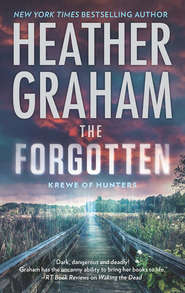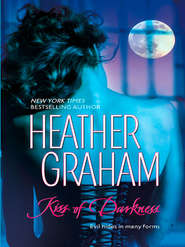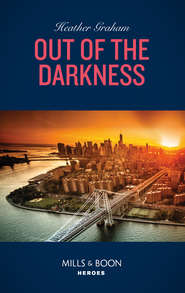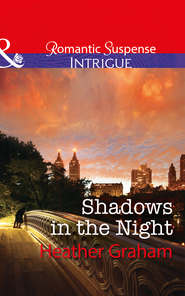По всем вопросам обращайтесь на: info@litportal.ru
(©) 2003-2024.
✖
Wicked Deeds
Настройки чтения
Размер шрифта
Высота строк
Поля
The place was smoky and dusty. Barmaids were hurrying about, handing out drinks. Men were being solicited for their votes.
There was a lone man seated on a wooden bench at a table, head hanging low. But when Vickie entered, he looked up, and he beckoned to her.
“I’ve been waiting for you,” he said impatiently. He stood, wavering.
He was a small man, just a little shorter than Vickie, maybe five-eight to her five-nine. His hair was dark and a curl hung over his forehead. His eyes seemed red-rimmed and sunken in his face, which was quite ashen, with a yellow pallor.
She knew him.
She’d seen his picture throughout her life; she’d loved his work. She’d loved that he’d been born in Boston—even if he had come to hate that city. There was a wonderful statue of him now, a life-size bronze figure of the writer, hurrying along with a briefcase and a raven.
She knew his face from so many pictures and images, a man haunted by demons in life, most of those demons brought about by his alcohol addiction. She’d always wondered if more knowledge during his age might have helped him; a really good therapist, a good program...
“I’m hallucinating you, you know. Delirium tremors,” he told her gravely. “But I have been waiting for you, Victoria.”
“I love your work!” Vickie said. She flushed. It was a dream, or a nightmare, and she was having a fangirl moment. She needed control and decorum.
“Yes, well, then, you are brighter than my insidious detractors,” he told her. “But here’s the thing. You must stop it. I am being used—my work, my memory. It was good—it was all good, until I came here, until I reached Baltimore. Then, they...were upon me.”
“They who?” she asked. “No one knows—it’s still a mystery.”
“They were upon me,” he repeated.
Vickie reached across the table and set her hand gently upon his. He was trembling, she realized, violently. “You’re not looking very well,” she said.
And he turned to give her a rueful smile. “No. I will not be here long, you see. But I’m glad that you made it, so glad that you’re here. It’s happening again. And you must do something. You must stop it. No one will see, because it’s much the same. Do you understand?”
“Not a word,” she assured him.
He looked across the room and seemed concerned; he stood suddenly and hurried toward the door. Vickie raced after him.
She didn’t see him at first. He was on the ground, slumped against the building. She tried to reach him, but there was already a man at his side, attempting to help him. She noted an address then, Lombard Street.
As she stood there while the one man tried to help, people continued to hurry along the street. Hawkers shouted out their wares—and their candidates. Drinks were promised for votes; there was laughter, there was a rush of music, someone playing a fiddle...
She tried to reach the fallen man, thankful that at least someone was helping him.
Across the bit of distance between them, he opened his eyes and looked at her.
“I have to go now,” he said.
“No...!”
“But I must. And you...”
“Yes?”
“You must pay attention.” He laughed softly. “Don’t let it happen again.”
“What’s that?” she asked.
A loud cawing sound seemed to rip through the air.
He looked at her sadly and said, “Quoth the raven—nevermore!”
1 (#u4c1cea3e-c0dc-5289-b0af-5bb3f1177773)
“There’s been an incident, a very bizarre incident,” Jackson Crow said.
His voice over the phone as he spoke to Griffin Pryce was steady—as always. Jackson had pretty much seen it all. As field director of a special unit of the FBI—unofficially known as the Krewe of Hunters—Jackson had just about seen it all, although he’d be the first to say they’d probably never “see it all.”
The “bizarre” was usually the reason the Krewe got called in.
“What’s the incident?”
“You’ve heard of Franklin Verne?” Jackson asked.
“The writer? Yes, of course. Kind of impossible not to have heard of him—he likes to do his own commercials. He’s known for action books with shades of horror, right?”
“Yes, that’s right.”
“What about him?”
“He’s dead.”
Griffin frowned, thinking about the night before. He’d actually heard mention of Franklin Verne’s name—he and Vickie had stopped for a damned good dinner and some excellent wine at a spectacular new Baltimore restaurant. Their waiter had mentioned that Franklin Verne was in the city and they were hoping to see him in the restaurant for a meal—and, of course, an endorsement!
“Griffin?”
“Yeah. I’m thinking that you’re about to tell me how he died, and since you’re on the phone with me, and you know we’re in Baltimore, I’m assuming he died in Baltimore?”
“Yes, last night. He was found in the wine cellar of the Black Bird, a new restaurant—”
“What?” Griffin said. He knew the restaurant—pretty well! It was, in fact, the posh place where he’d taken Vickie last night.
“The Black Bird,” Jackson repeated.
“We ate there last night.”
“Oh. Well, that’s convenient. You know right where it is.”
“I do. Fell’s Point, not far from where we’re staying. You know Vickie—we found a really great old historic hotel. Blackhawk Harbor House. In fact, I’m standing outside. It’s so wonderfully old and historic, though I can’t seem to make a cell phone call from inside.” He glanced up at the building. It had been built as a hotel in the 1850s—built with concrete and care. It would probably withstand any storm. The hotel was handsome and elegant, and Griffin enjoyed it—but he still found it annoying when he couldn’t get a decent signal on his phone from his room.
“They sure weren’t expecting Franklin Verne at the restaurant,” he told Jackson. “They talked about the fact that they hoped that he would come in. His patronage would be great for business.”
“I imagine. Well, he was there—is there. Sadly, he’s dead. At the moment, they’re calling it an accidental death.”
“Okay. So. How did he die? Was it an accident, possibly...?”











